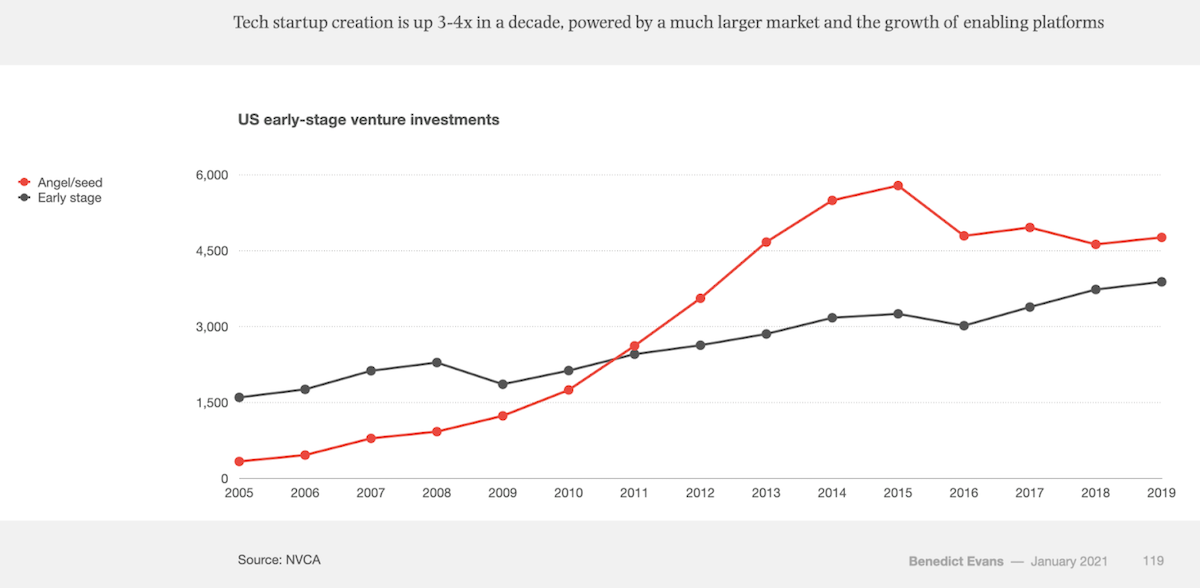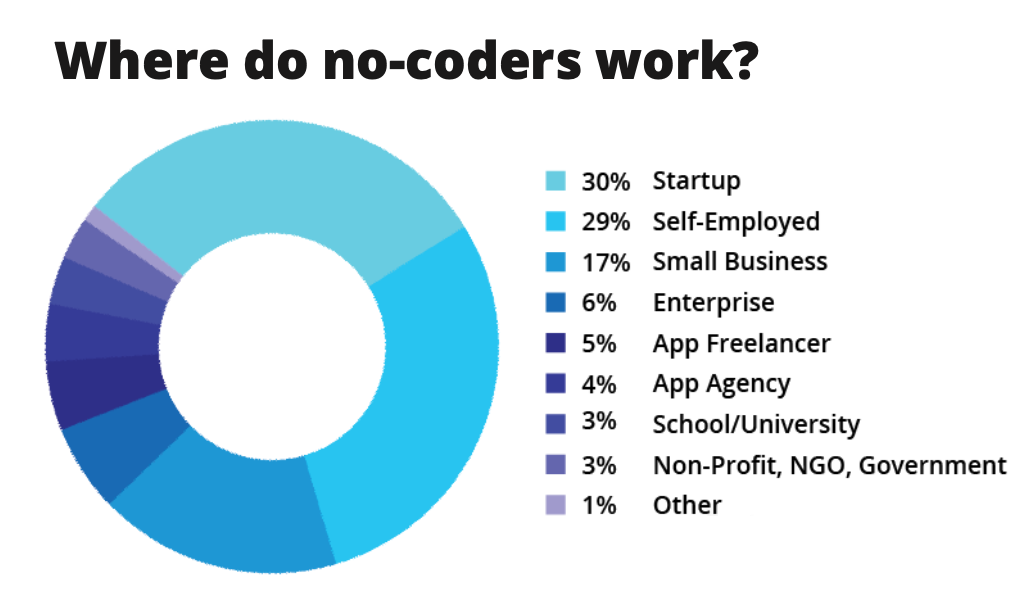
Bubble is one the leading no code platforms for building web apps. The team at Blue Green and I dabbled with it a bit for producing The Martech 5000 online database last year, and I was impressed by its power and flexibility. (For a richer example of what can be built, check out Martechbase, built entirely in Bubble by the amazing Agu Rejón, head of marketing technology at Velocity.)
Bubble recently published a No-Code Census 2020, conducted with 741 participants in the no code community. The report revealed a number of insights into who uses tools like Bubble — and why.
The stat I found most interesting was the pie chart at the top of this post:
- 30% of “no coders” in the census worked at startups
- 29% of “no coders” in the census were self-employed
- 17% of “no coders” in the census worked at small businesses
Taken together, that’s 76% of the respondents hustling in a scrappy environment. In contrast, only 6% reported working at an enterprise.
The reasons respondents gave for adopting no code tools were:
- Faster to build (71%)
- Build without engineers (66%)
- Easier to use (55%)
- Control over my product (46%)
- More affordable (45%)
Reading between the lines, it’s reasonable to conclude that many of the people in the no code community — more specifically, the web app building no code community around Bubble — are creating “products” more than “marketing.” It’s prototypes and MVPs. And, as no code platforms such as Bubble continue to improve, increasingly production-quality apps too.
Hold on to that thought for a moment.
When I did a much smaller, impromptu survey of no code usage with readers in August — where most of you identify as martech, marketing operations, or straight-up marketing professionals — the most popular tools were Zapier (78%) and Airtable (47%).
Only 8% reported using Bubble.
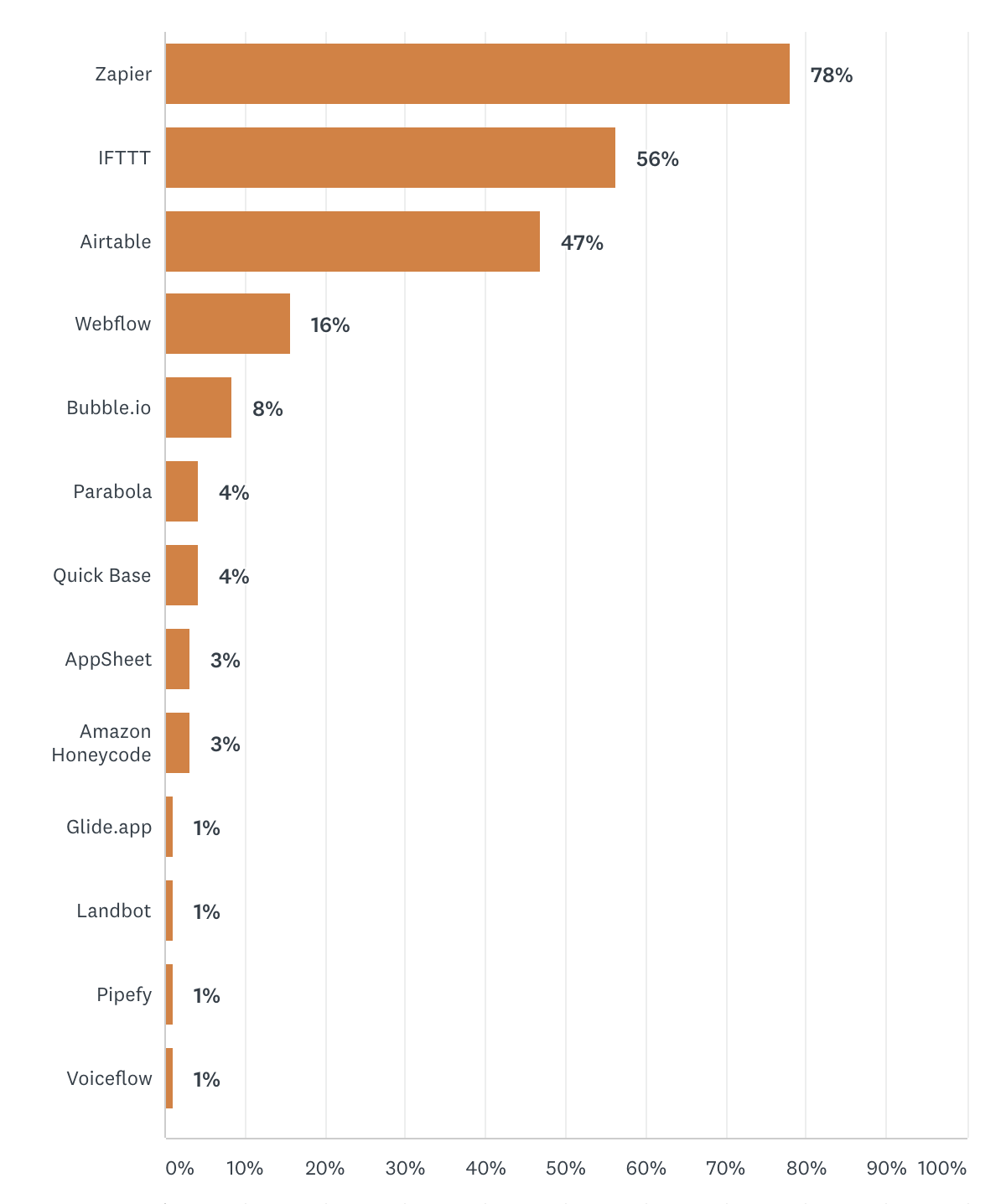
From a marketing ops perspective, this makes sense. There are a ton of operations use cases in marketing that involve piping data from one system to another, where iPaaSes such as Zapier, Workato, Tray, PieSync, Integromat, Automate.io, etc. are ideal for a blend of ops-led, “no code” integration, automation, and workflow management.
Airtable, part of the cohort of next-gen database/spreadsheet “no code” tools that are particularly helpful for organizing and collaborating on projects and processes, also fits naturally into the toolbox of the modern marketing ops professional.
But app building — particularly customer-facing app building — not so much.
One explanation is that the marketing ops “operations orchestrator” archetype is different than the web/app developer “marketing maker” one (see last year’s posts on types of marketing technologists and detailed data from our martech career survey).
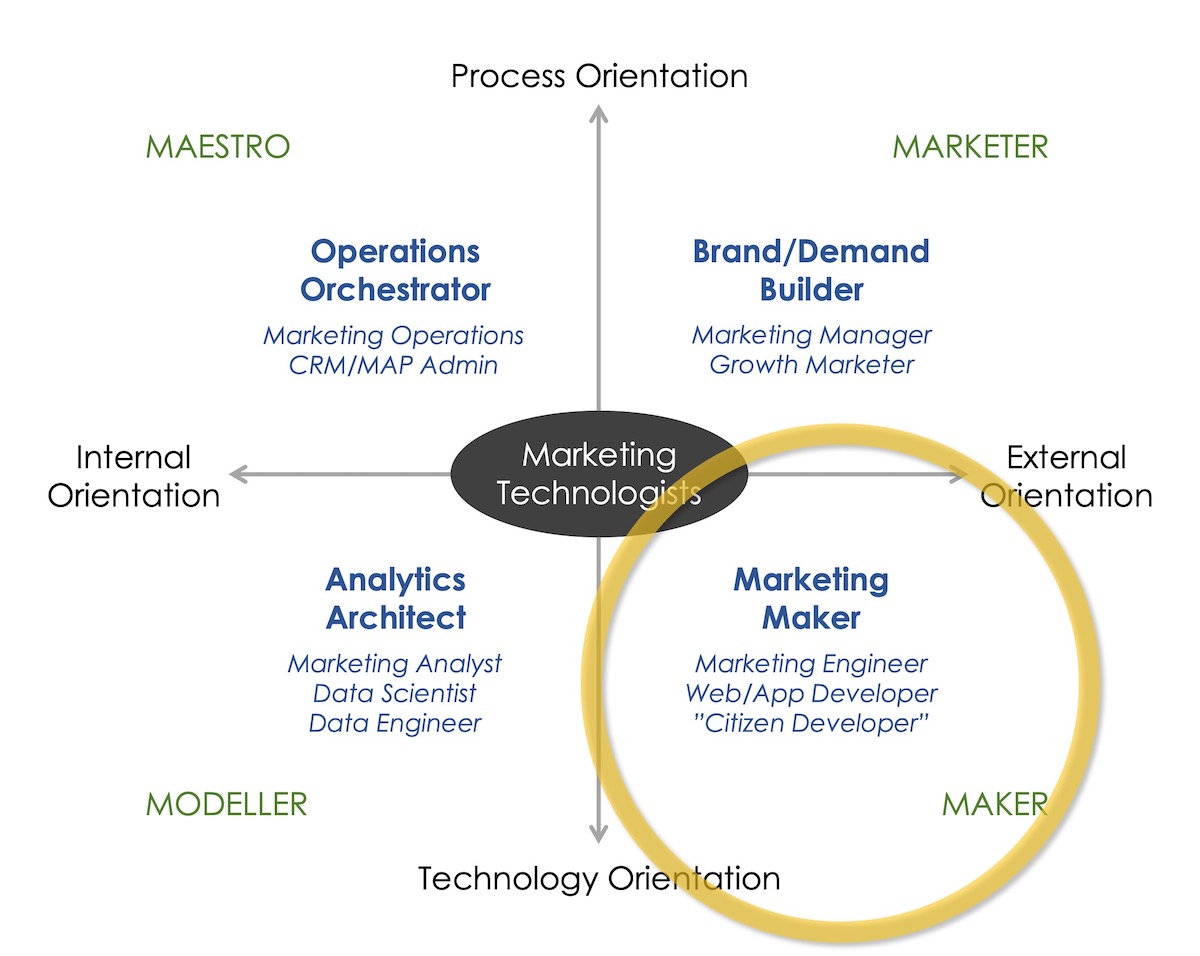
Yet I wonder if that may change in the near future. Three forces that I believe could catalyze greater no code app building by a broader set of marketing professionals:
- No code app building tools are getting easier and more powerful.
- In a digital business, asymptotically everything becomes an app.
- The agility, creativity, and sheer “hustle” of startups will exert increasing competitive pressure on larger enterprises.
Double-clicking on that last point, this era of rapid digital disruption is a startup paradise. I recently read a fantastic presentation by über tech analyst Benedict Evans called The Great Unbundling that provided a wealth of insights into the changing structure of how industries and how businesses go to market. This slide in particular popped out at me:
Around 8,000 startups received angel, seed, or early-stage investments in 2019, just in the US alone. To put that in perspective, there were 8,000 solutions mapped on the 2020 martech landscape. And that doesn’t include any startups who didn’t receive NVCA-tracked funding or any startups outside the US. One can easily imagine 2-3X that number of newly-launched and growing ventures. And the trend is clearly up-and-to-the-right.
So let’s connect the dots:
- Almost every industry is in flux with digital transformation (The Great Unbundling).
- Startups are taking advantage of this opportunity in record numbers.
- Web and mobile apps are the conduits to customers in that transformation.
- Startups are leveraging no code tools to move swiftly with customer-facing apps.
- Older, larger companies are leveraging no code tools too — but seemingly not so much for customer-facing apps and experiences. Yet.
Given that, I anticipate that older, larger companies are going to adapt — as 2020 has shown they can, quickly when they need to — to embrace a wider scope of no code tools empower a broader range of people throughout the organization to wield them. (See The 8 P’s of Self-Service Martech.)
I think that inflection point in enterprise adoption of customer-facing no code platforms is near. At companies of all sizes, “marketing makers” are going to be one hot commodity.
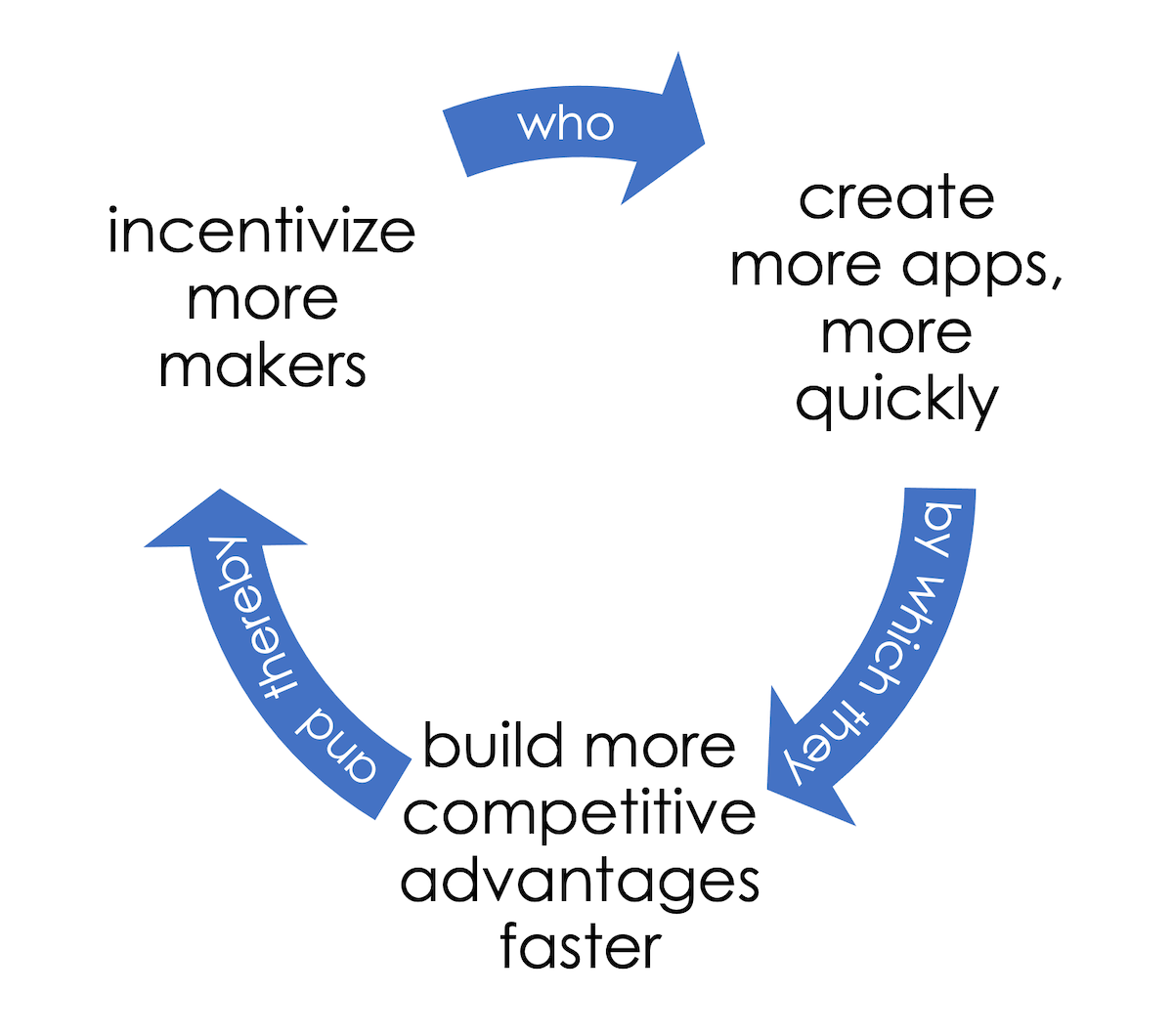
P.S. By the way, I just recorded the next episode of The Martech Show with Benedict Evans as my guest. One of the most mind-expanding interviews I’ve had yet. Will get it posted within the next few days.)

